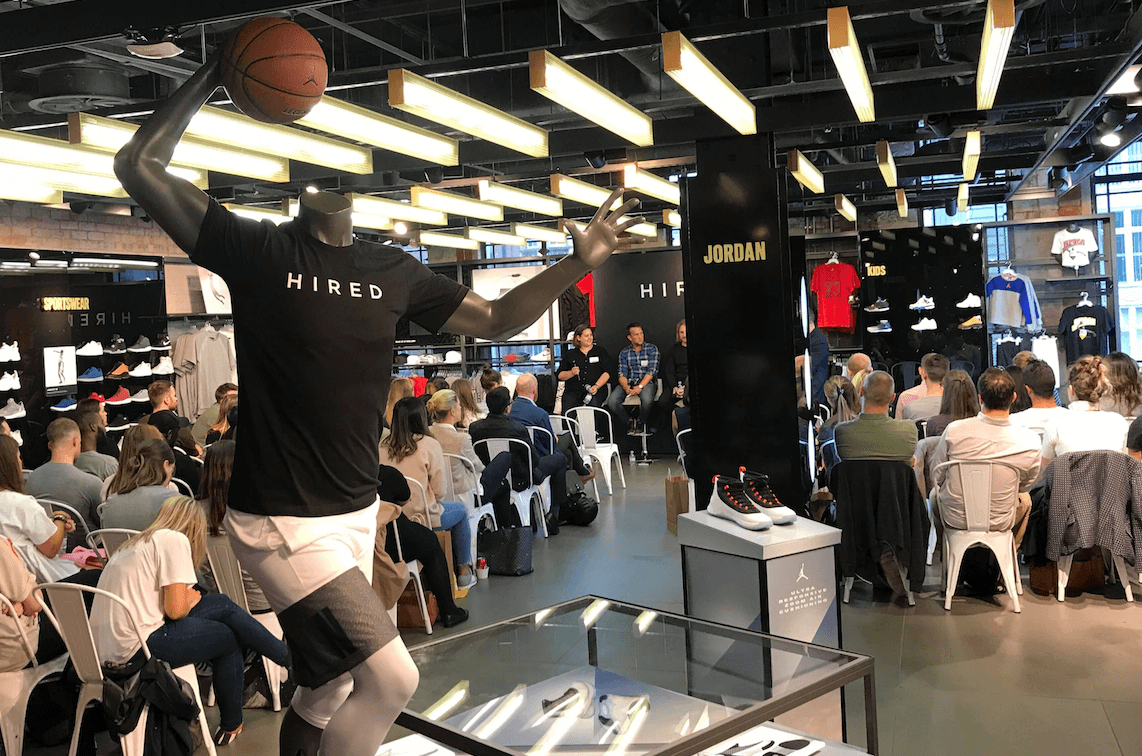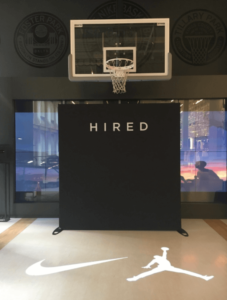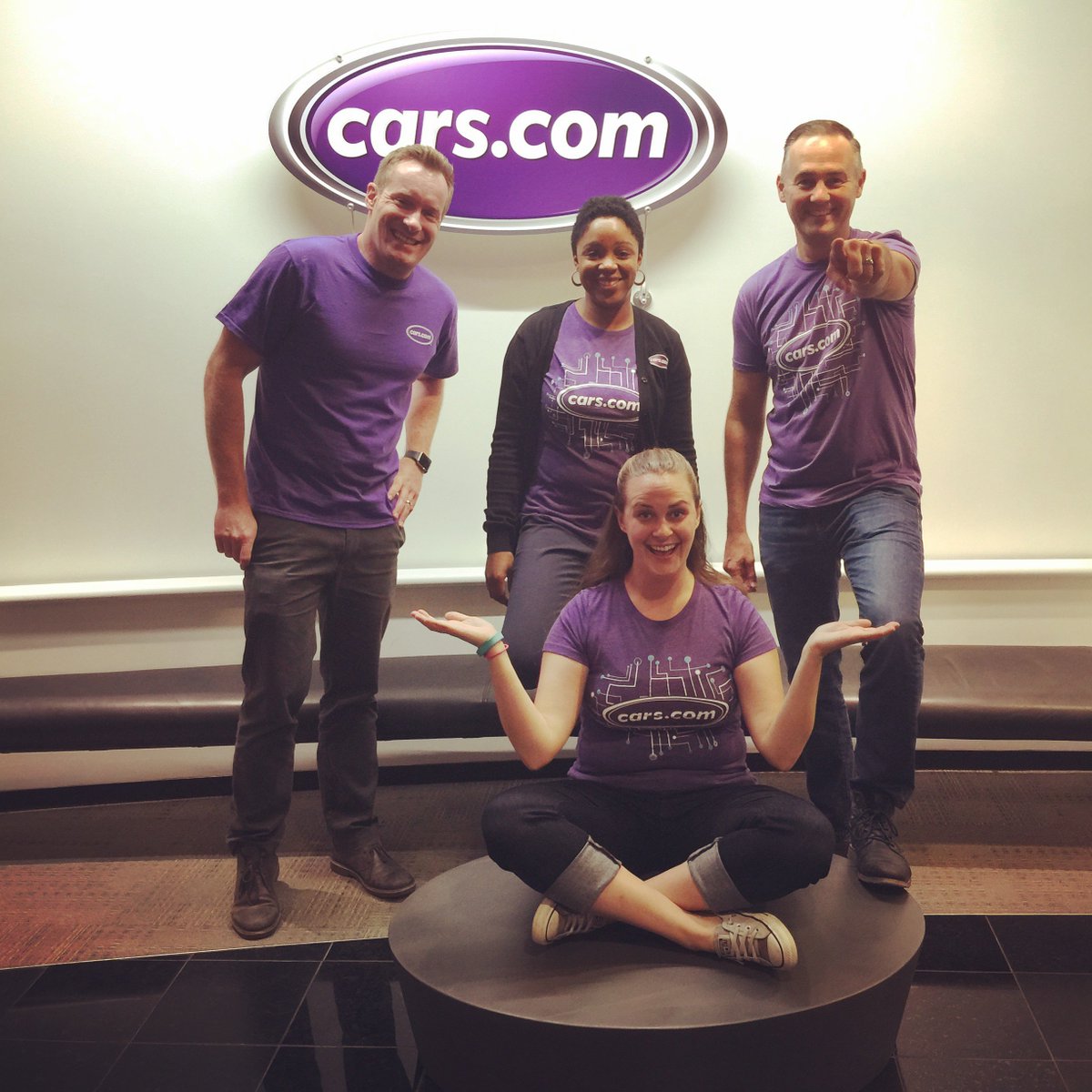
NYC Talent Leaders Discuss Metrics, Hiring Data, and Dream Recruiting Projects
Last week, Hired got together 150 of our closest recruiting friends and set about an evening of wine, hors d’oeuvres, and talent discussion at the Nike store in Soho, NYC. Once our attendees had made use of their $100 Nike gift cards, we settled in for a panel discussion with some exciting, sharp-as-nails recruiting leaders. Here’s the lineup:

Jamie Hooker, Director of Talent, SeatGeek
Travis Ousley, Head of Talent Acquisition, Managed by Q
Ashley Babinecz, Senior Manager, Recruiting & Operations, AppNexus
John Erban, VP Global Recruitment, Axiom
Matt Hughes, Head of Talent, Hired
Our panelists covered a huge amount of their experience, strategies, and high level recruiting tactics over the course of the evening, and we collected some highlights below. Drumroll please.
Hiring manager expectationsAs the conversation shifted to managing hiring manager expectation, Jamie Hooker of SeatGeek explained how to suss out the real question when stakeholders make data requests:
“It’s important to understand the real question at hand when people make data requests. We had a hiring manager ask about candidate pipeline, and it turned out he had conducted 30 phone screens for one candidate, and is his mind, would need at least another 20 candidate to make the hire. Surfacing the real concern here allowed us to re-calibrate the phone screen process and sourcing strategy.”
Because they spend so much time mentoring their team and focusing on high level recruiting strategies, many talent leaders have pie-in-the-sky, long term recruiting projects or ideas they wish they could enact. Hired’s own Matt Hughes asked our panelists to detail their own pipe dreams, and they were delighted to share. Travis, for example, would love for recruiters to have the same certification rigors as other professions:
I would love it if there was a certifying body for TA. I would love to know if anyone interviewing on my team was actually certified to do so by an external governing body. We would actually have a score for various roles, and pick the individuals on our team who are best qualified to interview, for example, account managers.
Meanwhile, Jamie wishes she could apply lifetime campaign stats to employer branding initiatives:
More concrete tracking around employer branding. [It] can be a long term strategy, for example a candidate could come back two years after having attended an event and say “I loved that event you threw, here I am two years later ready for a job.” Because it’s so long term, it can be hard to attribute that hire to a specific event and fight for budget for employer branding.
Over at AppNexus, benchmarking is top of mind for Ashley:
Conversion metrics from our talent competitors. We have no idea how well they’re converting, so it’s really hard to benchmark. We can benchmark based on our own performance and friends in the space, but you can’t really know how well you’re performing relative to the competition.
From here, the panel faced questions from the audience. Several recruiters in the audience jumped at the opportunity to pick the panel’s brain, and we picked out our favorites:
What do you look for when hiring a recruiter?Ashley: Grit is one of the most important things. We’ve all had those quarters where somehow things just aren’t landing, and you need to be able to get off the phone with the candidate who just broke your heart out of nowhere and get on the phone with the next one. Being focused not just on results, but how you get there, and appreciating how many passes it took to get the ball to the right person is something I value in a recruiter.
Matt: My favorite question to ask recruiters is, given that you’re hiring from the same talent pool and using the same tools, how do you stand out and differentiate from all the recruiting noise that candidates hear?
Travis: My two favorite qualities in a recruiter are curiosity and self awareness. I cannot train those two competencies, so for me I would argue those are the most crucial traits for any job, not just recruiting.
Do you hold your recruiters to retention goals?Ashley: We don’t. We will look at changes in quality of hire over time and at different stages in our company’s growth. We pulled the numerical score attached to interview feedback and saw how that number, on hired candidates, has fluctuated over the years. This allowed us to see if our bar for hiring had changed or if it moved in response to the team growing or other recruitment processes being put in place.
John: In those moments, it’s important to ask ‘what can we learn?’ as opposed to ‘what went wrong here?’. It happens, you make bad hires, but if you ask ‘what can we learn from this?’ you can get it much better the next time around.
Sad you missed out? Don’t worry recruiting pals, we’re fixin’ to bring informative recruiting panels to a city near you. Follow @Hired_HQ over on Twitter and stay tuned for more information about events near you!
Related blog posts

How To Beat Burnout For Managers: 3 Habits For Stress Relief
Are you feeling overwhelmed as a manager? Studies show that managers face a higher risk of burnout...

9 Game-Changing Project Management Tools for Scaling Your Team’s Results
The ever-changing workplace of today brings with it ever-evolving workplace rituals —...

How Cars.com Is Driving the Future of Tech Recruiting
Mike Dwyer is a man of many talents. HR leader, improv comedian, and entrepreneur, Mike is known...

What Do Millennials Want at Work? 7 Things They Want & 3 Employer Dealbreakers
As a key part of today’s workforce, Millennials have been the source of many work memes,...

5 Interview Questions Hiring Managers Need to Ask Before Making An Offer
Job interview questions can be time consuming fact-finding missions that don’t always yield...

The Key to Hiring Top Software Engineers Isn’t More Money
With demand for technical workers soaring, and an expected job growth rate of 17% by 2024, hiring...

